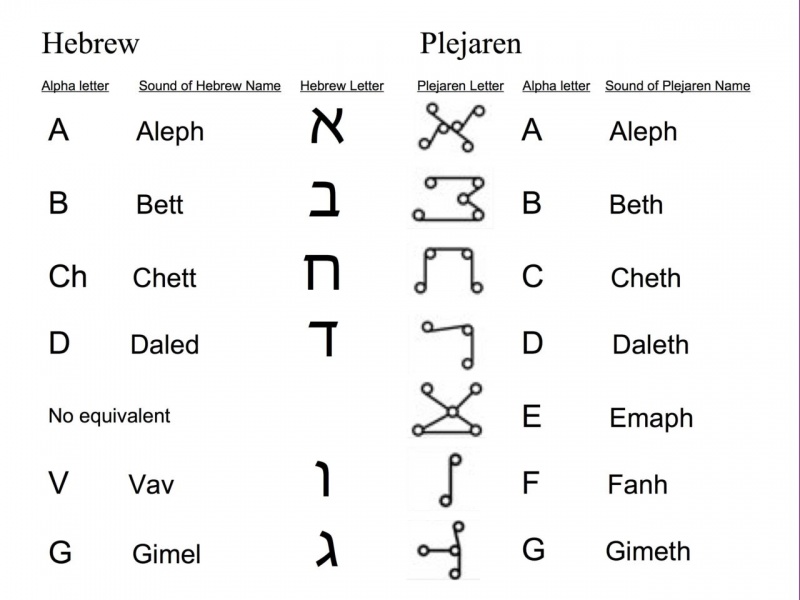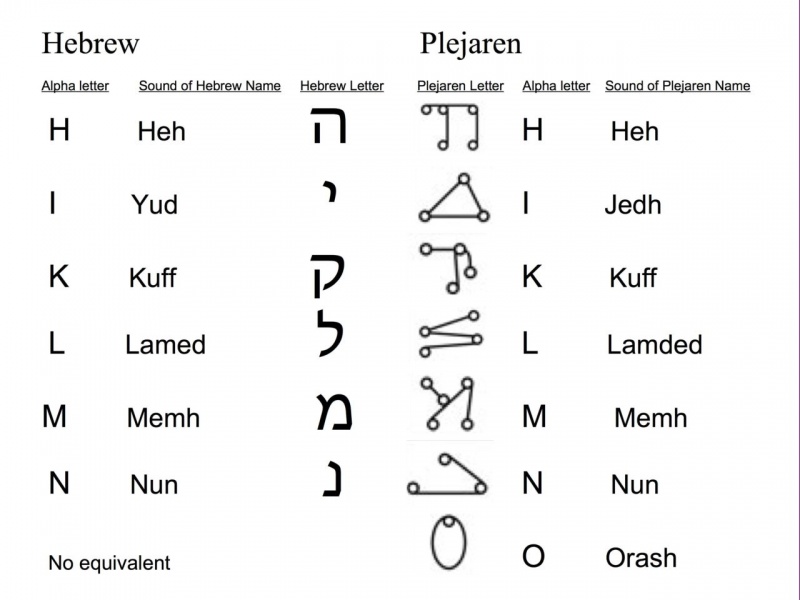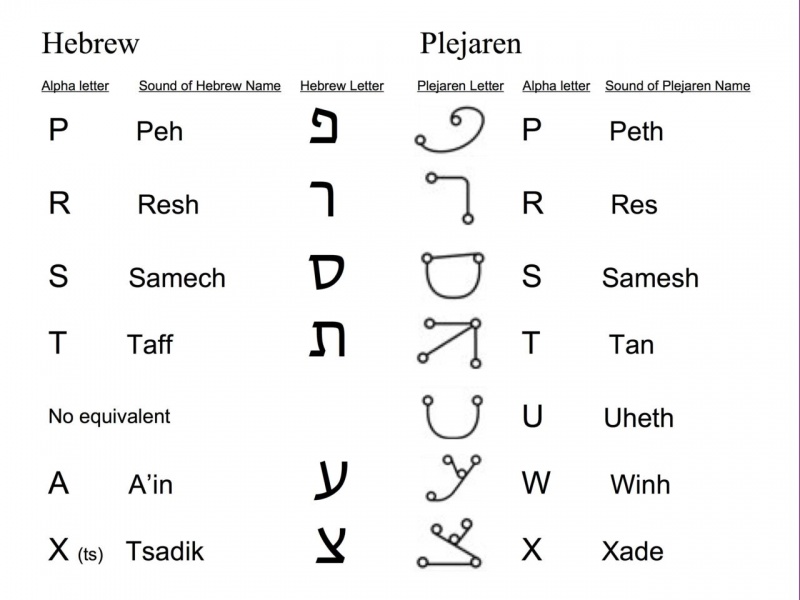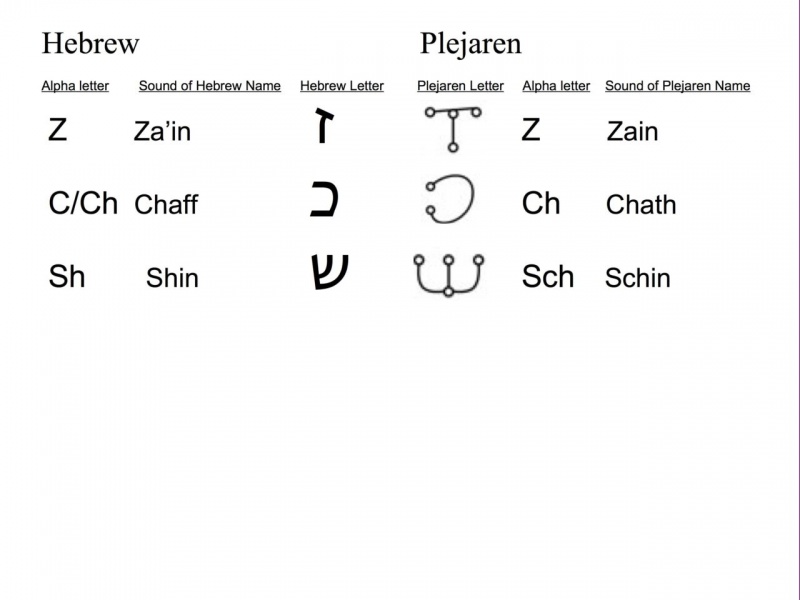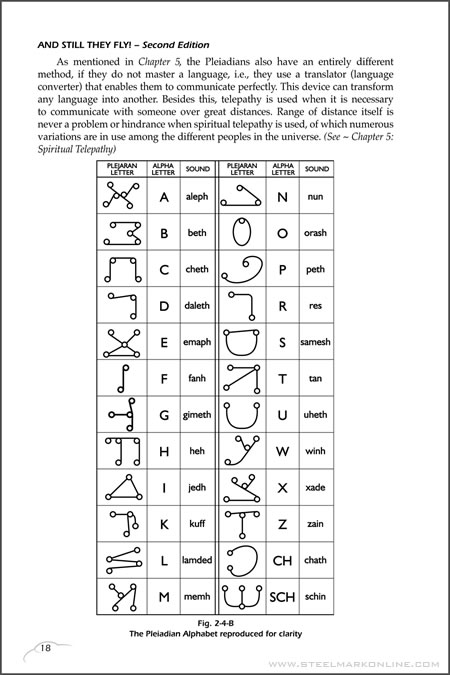Difference between revisions of "Plejaren and Hebrew Alphabet Comparison"
| Line 2: | Line 2: | ||
{{Nonfigupublication}} | {{Nonfigupublication}} | ||
<br> | <br> | ||
| − | A comparison of the Plejaren and Hebrew alphabets | + | A comparison of the Plejaren and Hebrew alphabets, see [[The Plejaren#Languages]] |
[[Image:Plejaren and Hebrew 1 4.jpg|800px]] | [[Image:Plejaren and Hebrew 1 4.jpg|800px]] | ||
Revision as of 19:45, 14 March 2019
IMPORTANT NOTE
This article is not an official FIGU publication.
A comparison of the Plejaren and Hebrew alphabets, see The Plejaren#Languages
You can download the above comparison in a single pdf document from here.
You can also download the Plejaren alphabet in EPS and AI format File:PlejarenAlphabet.zip.
From And still they fly! p.18, a book by Guido Moosbrugger
The Essence of the Notes
A book by an unknown author which covers from Contact Report 001 to Contact Report 076
4.2.4 Language
Origins of Plejaren writing 31.230-238
The Plejaren alphabet consists of 26 letters, of different shapes and names then English letters, plus two more letters for the sounds of “ch” and “sch”. Meier copies them along with the pronunciations from Semjase's explanations. There are no umlauts or other pronunciation keys. This alphabet is 11,000 years old. It is taken from the ancestors of Plejaren scientists on Earth, who based the patterns on star formations as seen from Earth. The script is composed of circles (representing stars) and lines. Their older letters were much more complex and no longer used on Earth. But, it was in use centuries ago and often changed. Some current Earth scripts are altered forms of this Plejaren alphabet. The ancient scripts on Earth were brought by "the heavenly sons & daughters" who were responsible for the re-emergence of Earth humanity from savagery.
Sarat language and Kosan language 61.215-219
The name of the language that is spoken in the Pleja System is called Sarat. There is also a common inter-galactic language that is known as Kosan.
"telenotical" - word defined 36.38-40
"Arimo" - word defined, "hold on" 39.83-95
Tir Nan Og - "Green Lands", "Land of Youth" 39.P192-195
Plejaren - mother-in-laws ("Geranisa") 42.100-104
Spharmiddon - word, meaning the end of the Earth 45.64-68
"Adonis" - ancient Greek word, beautiful humans 39.P41-42
SENAN (name of our universe in Asket's language 54.11
The following are words that are spoken in the native language of the Plejarens and their meanings: “Telenotical” is a type of telepathic influence that uses hypnosis and high frequency oscillations as inaudible signals into human ears, “Arimo” means to hold onto something (FOM Note: May mean ‘stop’, ‘The Essence of the Notes’ utilised older translations of the contact reports), “Tir Nan Og” refers to green lands or a land of youth, “Geranisa” is the title for a mother-in-law, and “Spharmiddon” means the end of the Earth. In additions, “Adonis” is an ancient Greek word that means physically beautiful humans and “Senan” which is the name of our universe in Asket’s native language in the Dal Universe.
